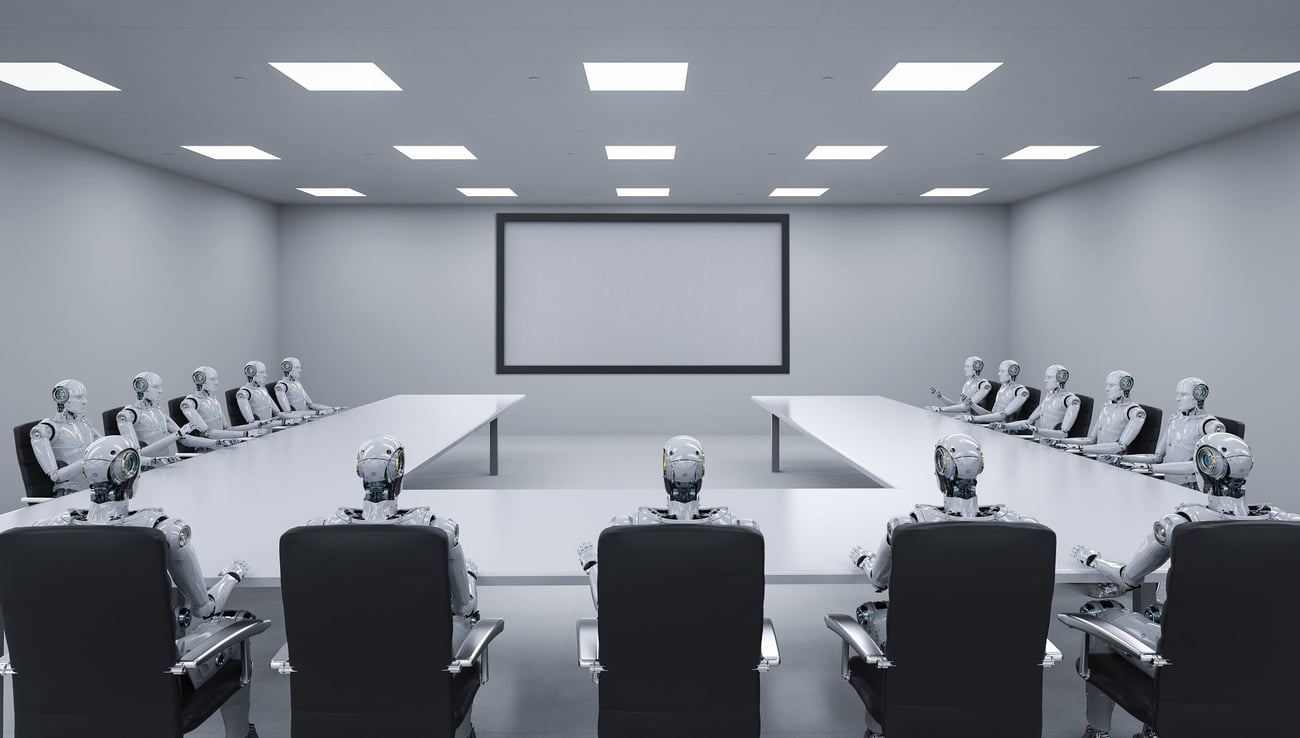
Due to its rapid technological development, artificial intelligence will start to enter boardrooms over the next few years. They won’t initially replace the role of directors, but will augment decision making. It will be interesting to witness when automation and artificial intelligence become more mainstream and make some board decisions in the future.
In 2014, Deep Knowledge Ventures, a Hong Kong-based venture capital firm appointed an algorithm named Vital (which stands for: Validating Investment Tool for Advancing Life Sciences) to its board of directors. According to various media reports, the algorithm was given the right to ‘vote on whether the firm makes an investment in a specific company or not’, just like the other – human – members of the board. Vital was appointed because of its ability to ‘automate due diligence and use historical data-sets to uncover trends that are not immediately obvious to humans surveying top-line data’. For instance, Vital helped to approve two investment decisions, namely to fund Insilico Medicine, an enterprise which develops computer assisted methods for drug discovery in aging research, and Pathway Pharmaceuticals, which selects and rates personalized cancer therapies on the basis of a platform technology. However, Vital was not granted an equal vote on all financial decisions made by the company. Legally speaking, it has not even acquired the quality of a corporate director under the corporate laws of Hong Kong. It is just treated ‘as a member of [the] board with observer status’ by its fellow (human) directors. Nevertheless, Vital has widely been acknowledged to be the world’s first artificial intelligence company director.
As it helps directors make decisions, is AI and machine learning poised to bring valuable insights to company directors? My first reaction may have been to view this as far-fetched as boards normally require good judgement, business acumen gained from decades of industry experience. But AI is starting to be used in the health sector and financial services to assist in complex decision making or analysis.
The medical profession is using AI to augment their decision making in respect to better diagnosis and personalised treatment for patients well-being. AI analyses research, finds patterns across patient populations and can prioritise the right course of treatment. Studies to date have shown that it reduces error rates and its starting to transform health care. This has led me to think how could AI transform the boardroom for the next generation.
The cost of bad decisions is high and history is littered with many boardroom disasters. One just needs to consider that it’s forecasted that 50 percent of Fortune 500 companies in America will fall off the list by 2027. It is acknowledged that failure rates are still high for new product launches, mergers & acquisitions and digital transformation strategies. The responsibility for these failures fall solely in the hands of management and the board.
In 2015, McKinsey, a consultancy, found that 16 percent of board of directors did not fully understand how the dynamics of their industries was changing and how new technologies could impact their businesses. One possible solution might be to incorporate AI in the practice of corporate governance and strategy but not automating any of the decision making. AI could be used to improve decision making by tracking for example capital allocation patterns and highlight any red flags to the company directors. It should not replace a directors judgement, intuition and experience in making a decision but supporting them like a smart analytical tool.
There are still a few steps required to bring AI into the boardroom according to recent analysis. This can range from data collection over several years, developing methods to analyse the information and ultimately providing a recommendation to be considered by the board.
In conclusion, there are several questions to ask ourselves:
Will this technology (AI) be a net creator as opposed to a net destroyer of jobs?
In the future, will the skills required in the boardroom need to evolve such as creativity and original thought?
As technology automates some compliance/decision making, the future boards may be a combination of data analytics and human ingenuity.
This is only the beginning of the journey in transforming boardrooms.





